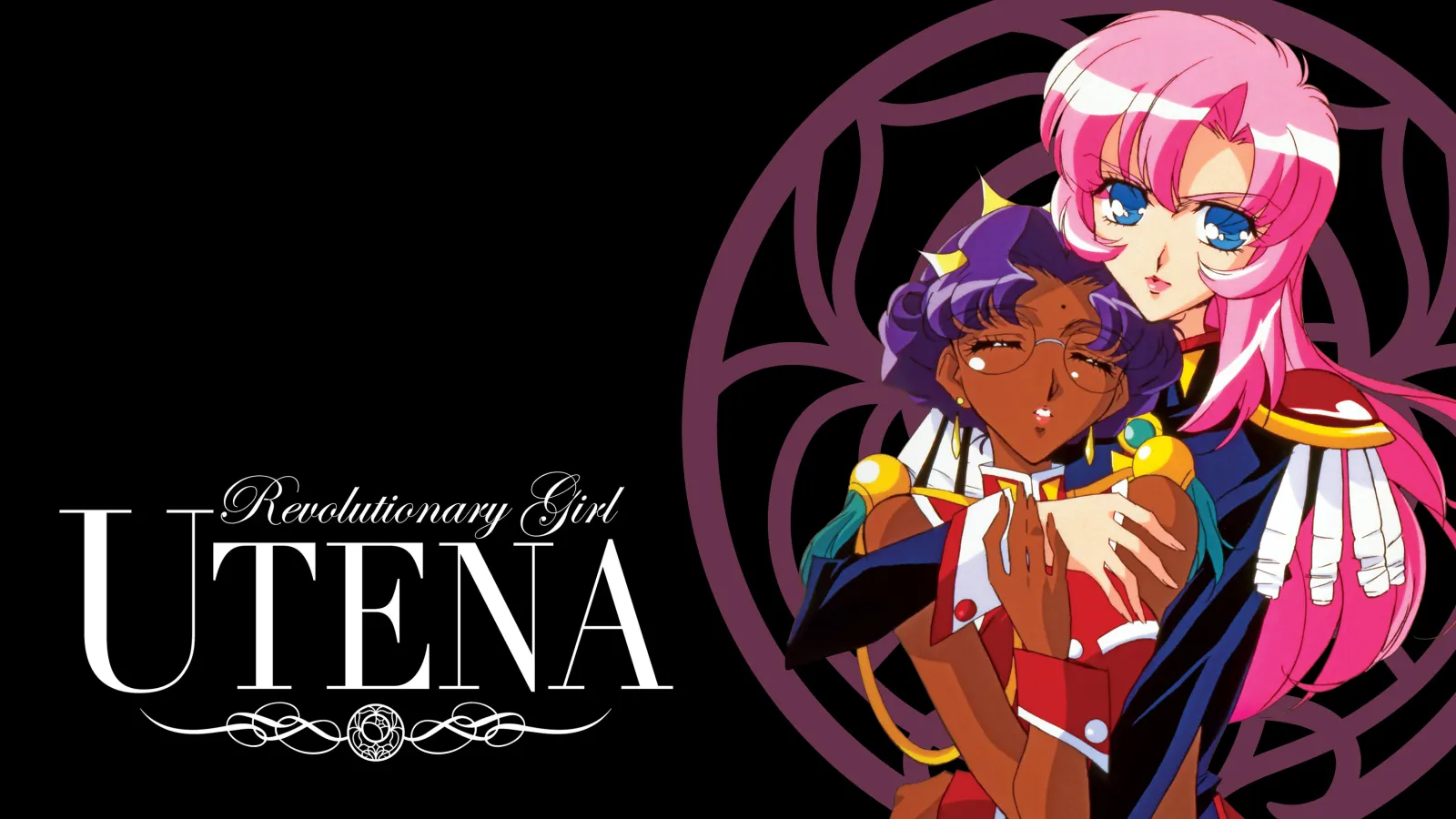
My kids and I tend to give daft nicknames to the shows we watch together. Lately, my eldest son and I have endured suspiciously immortal director Ridley Scott’s latest androids’n’misery SF depression-fest Raised by Wolves. We refer to it as “Murderbots”, an apt, snappy title. Last season, my daughter and I watched Re:Zero Season 2, but referred to it as “Misery by Death”. After my failure to entice her to watch the final season of SNAFU with me (she referred to it as “that boring torture anime”) I have managed to interest her in “Pink-haired Lesbians.” Yes, it’s Revolutionary Girl Utena time.
Revolutionary Girl Utena is a 39-episode TV anime series from 1997, written by manga artist Chiho Saito (part of the Be-Papas collective) and directed by Kunihiko Ikuhara (previously best known as series director for Sailor Moon S). Ikuhara went on to direct further bizarre shows Mawaru Penguindrum (2011), Yurikuma Arashi (2015) and most recently, 2019’s Sarazanmai. Utena (and its subsequent movie) was Ikuhara’s first opportunity to stamp his unique style onto an original property, unleashing a cascade of whimsical, allegorical oddness onto an unsuspecting world.
For a long time, Utena was unavailable to watch legally in the UK. Apart from a DVD release of the movie sometime around 2009 (fairly pointless without the preceding series), and Funimation NOW’s much more recent streaming availability, Anime Limited’s 2020 UK Region B release of what appear to be US distributor Nozomi Entertainment’s three 2018 Region A blu-ray sets is the first time UK anime fans have been able to own the series on shiny physical disc. I jumped at the chance to fill another gap in my anime education.
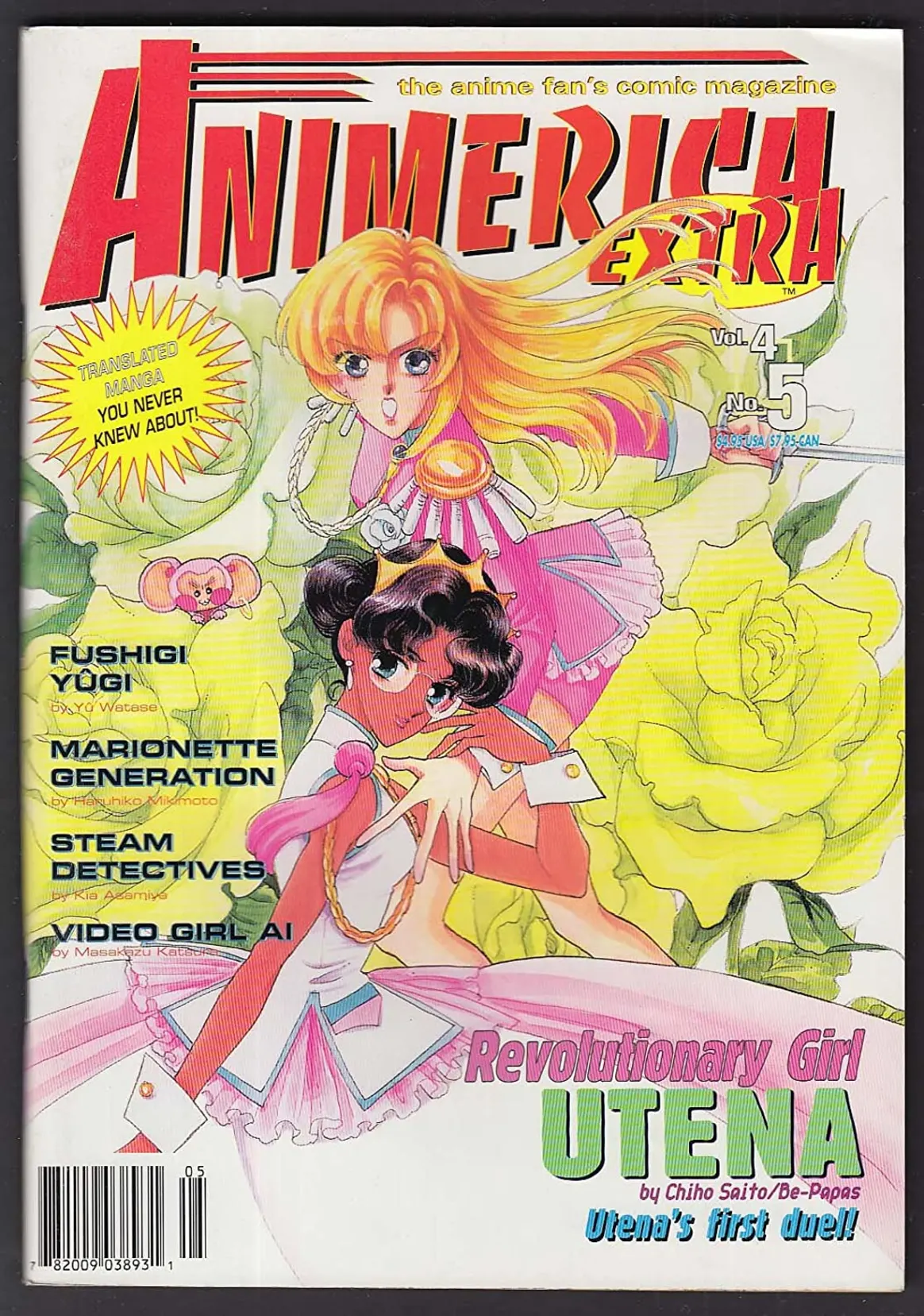
This isn’t my first exposure to Utena. Back in 1998, Viz Comics replaced its first print manga anthology Manga Vizion with a similar title – Animerica Extra – that ran until 2004. Within its pages, along with renowned shojo manga like Fushigi Yuugi and Banana Fish (itself a refugee from another cancelled anthology – Pulp), appeared the manga version of Revolutionary Girl Utena by Chiho Saito. Although it covers similar territory, the story is quite different and as it’s been well over 15 years since I last read it, I come to the anime version with only the vaguest of familiarity.
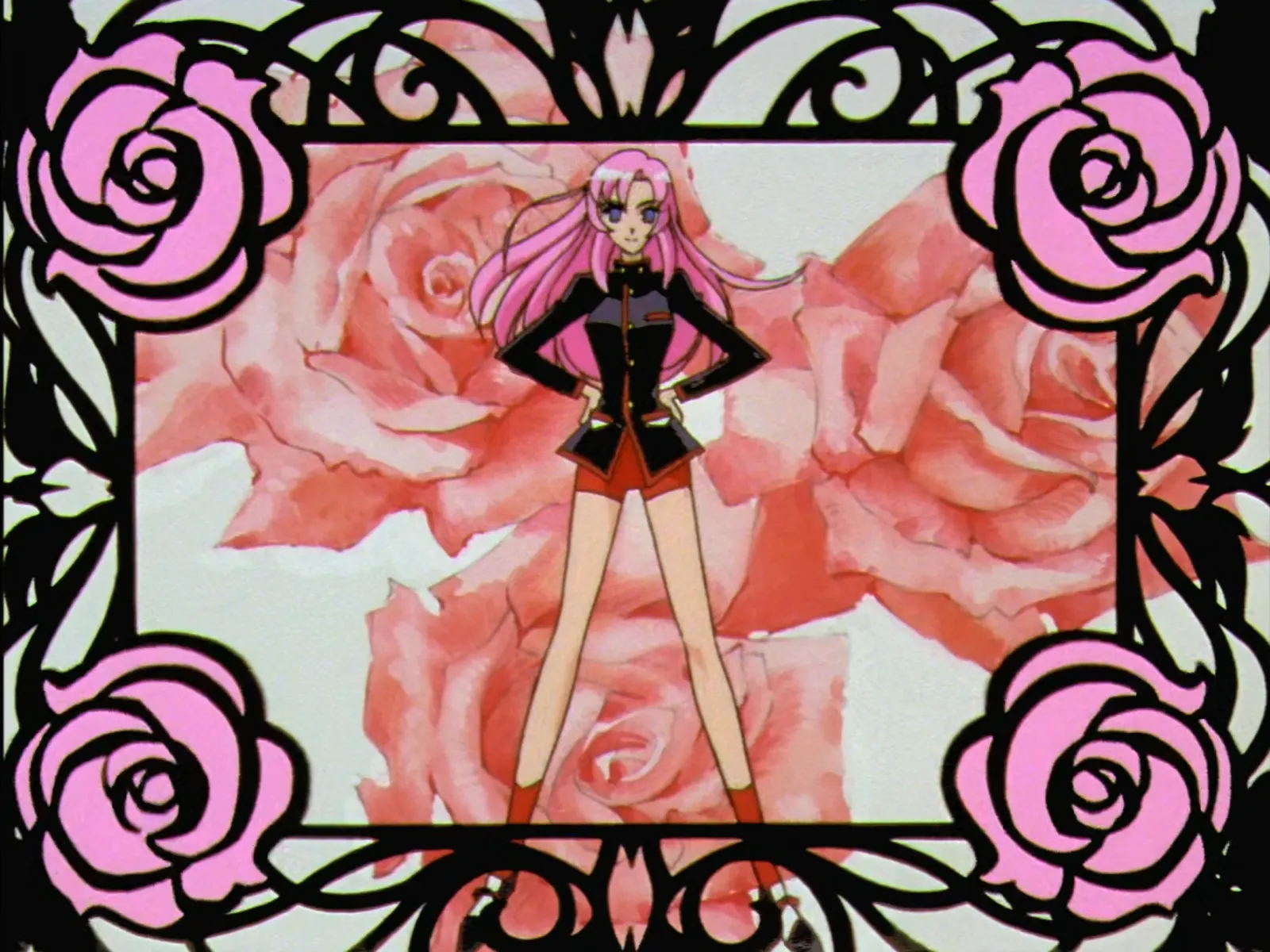
Utena Tenjou is a 14-year-old orphaned girl who enrolls at Ohtori Academy, a prestigious school for elite students. She hopes while there to find the “prince” who inspired her as a child to embrace her own noble prince-like nature – hence her rejection of the traditional female school uniform and adoption of a stylised male equivalent. She swiftly becomes embroiled in the Student Council’s bizarre intrigues, as the rose-crested ring gifted to her by her elusive prince grant her the right to duel other sword-wielding students for the chance to take possession of passive fellow student Anthy Himemiya as the “Rose Bride”. Utena unwittingly wins her first duel and is perturbed to become Anthy’s new betrothed, much to the indignation of the other Student Council members.
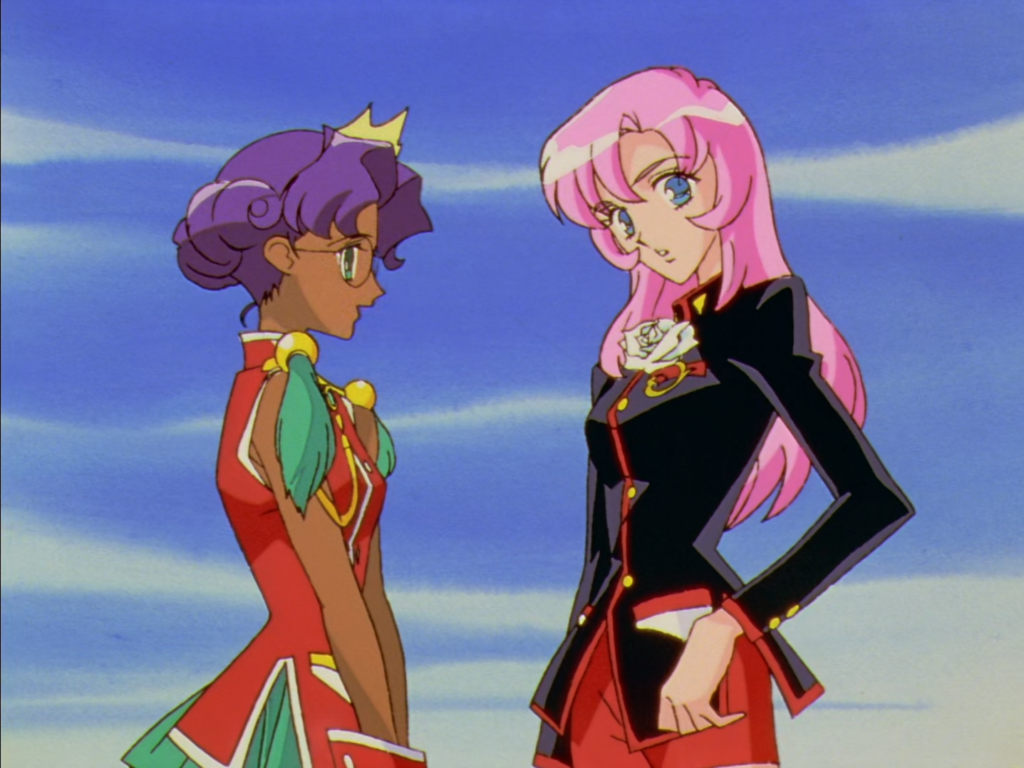
So right away, the context is set for a bizarre story. The reason that engagement to the Rose Bride is a prize sought by multiple influential students is that such a status will, at some point in the future, grant the betrothed the ability to “revolutionise the world”, whatever that means. It’s all very light on concrete details but heavy on symbolism and subtext, even in the first 12 episodes that make up this initial box set. The inaugural 13 episodes were originally released on VHS in the US by Central Park Media in 1998, but due to rights difficulties the remaining 26 episodes’ release was delayed until 2002-2003, when they finally materialised on DVD. As this was in the days before streaming and torrenting, western fans had limited opportunities to finish watching the show.
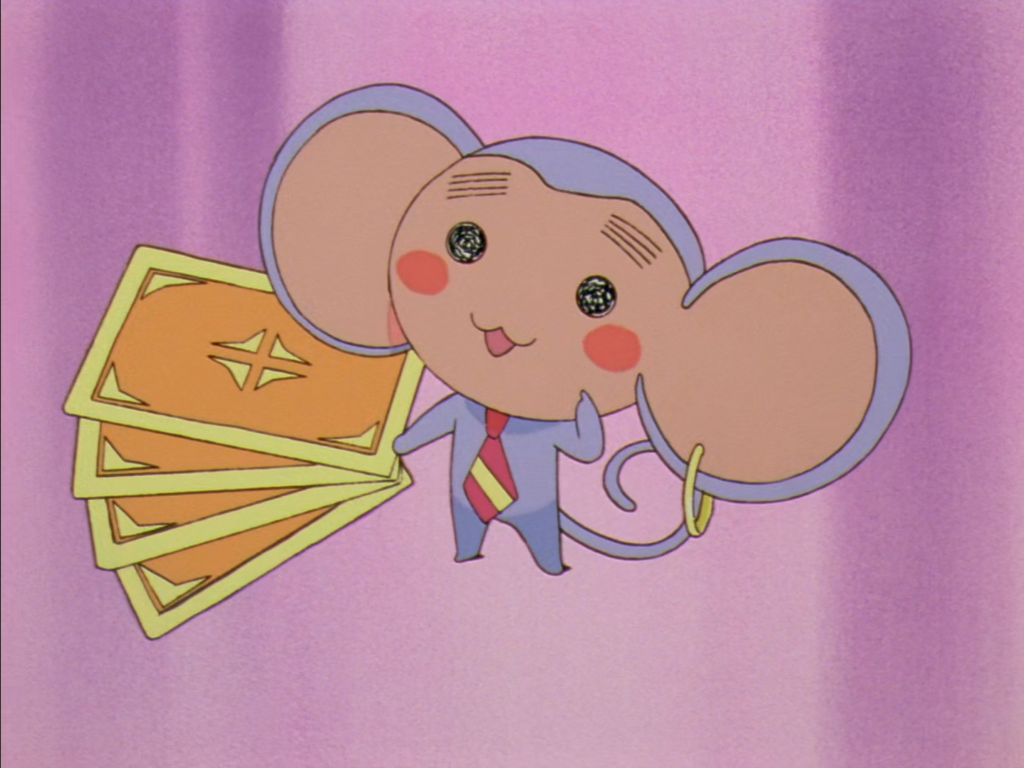
Utena is a common entry on many “best anime ever” lists, though you would be hard pressed to comprehend why based only on the quality of this first set. Presenting very much as a stereotypical school drama/comedy about eccentric characters with colour-coded hair, only a few aspects initially set the series apart. For one, the animation style and character designs are painfully dated, all wispy teenagers with impossibly long matchstick legs, enormous eyes and gormless expressions. The presence of a “cute” animal mascot sets my teeth on edge, but your mileage may vary on this. Too often the show’s humour relies on dumb slapstick and fingernails-down-a-chalkboard irritating side characters interacting in repetitive, stereotypical ways. Perhaps some of this early bog-standard anime dullness exists to lull the viewer into a false sense of security, only to snatch it away as the weirdness creeps in.
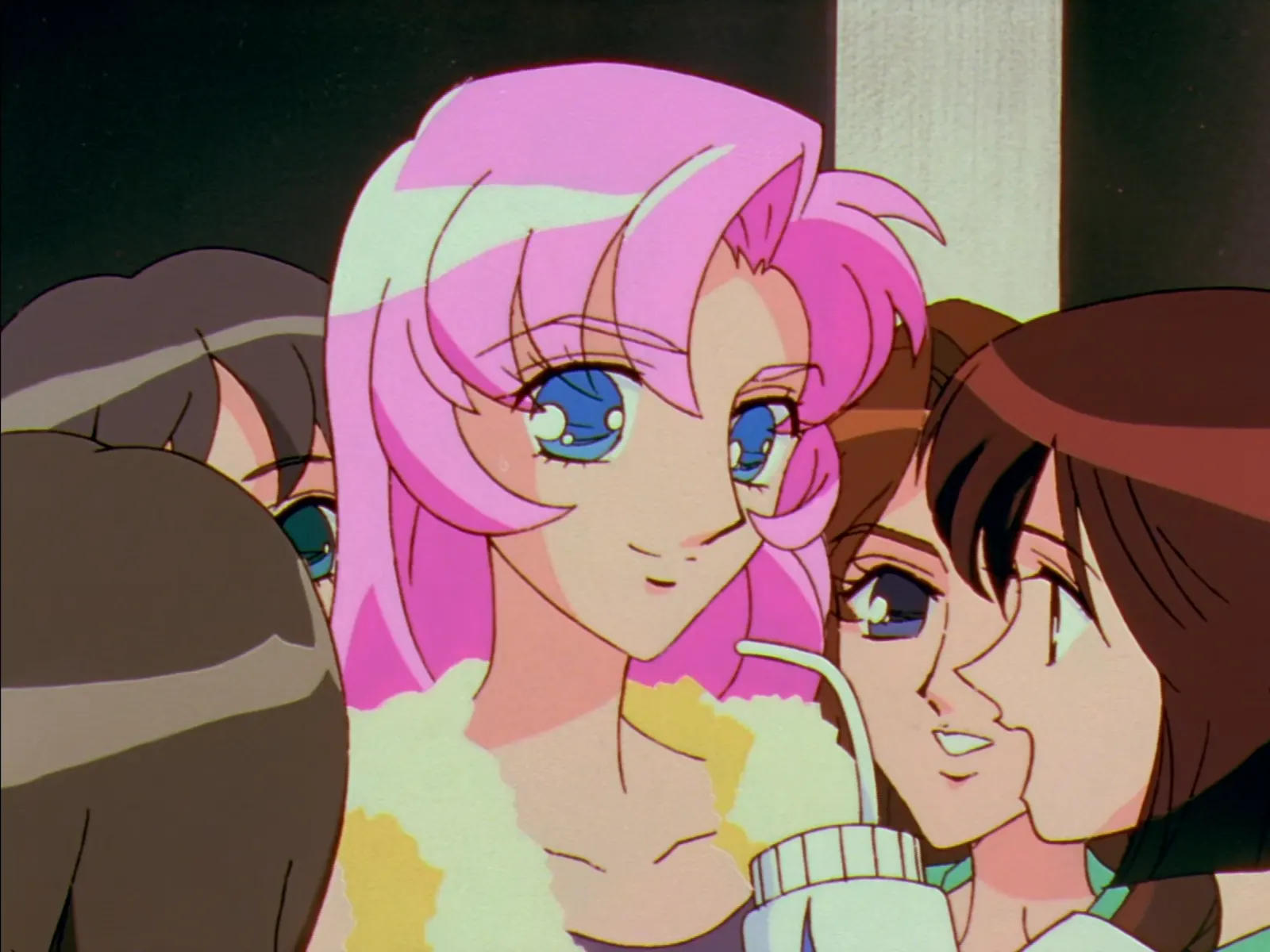
Protagonist Utena’s clothing design is undeniably cool, although that doesn’t explain why all the other schoolgirls coo and gasp orgasmically when she walks by. “I guess lesbianism is infectious, then?” suggested my daughter. A teacher challenges our tomboyish Venus on her non-standard attire, to which Utena responds “there’s nothing in the school rules that says I can’t wear a boy’s uniform.” Now it’s worth noting that Utena does not appear to identify as male – but as a prince, a concept that in this part of the show at least, appears to be mostly divorced from concepts of gender. Well… not exactly – it’s clear that she acts in a non-normative way for the setting, but Utena seems confident in her identity and presentation as a girl who just happens to look awesome in a tailored boy’s uniform, complete with short shorts rather than the usual trousers. Her clothing emphasises her heightened femininity, but utilises the tropes of stereotypical masculinity (shoulderpads, tassels, other prince-like adornments) to exude a strength of character that unnerves the other students.
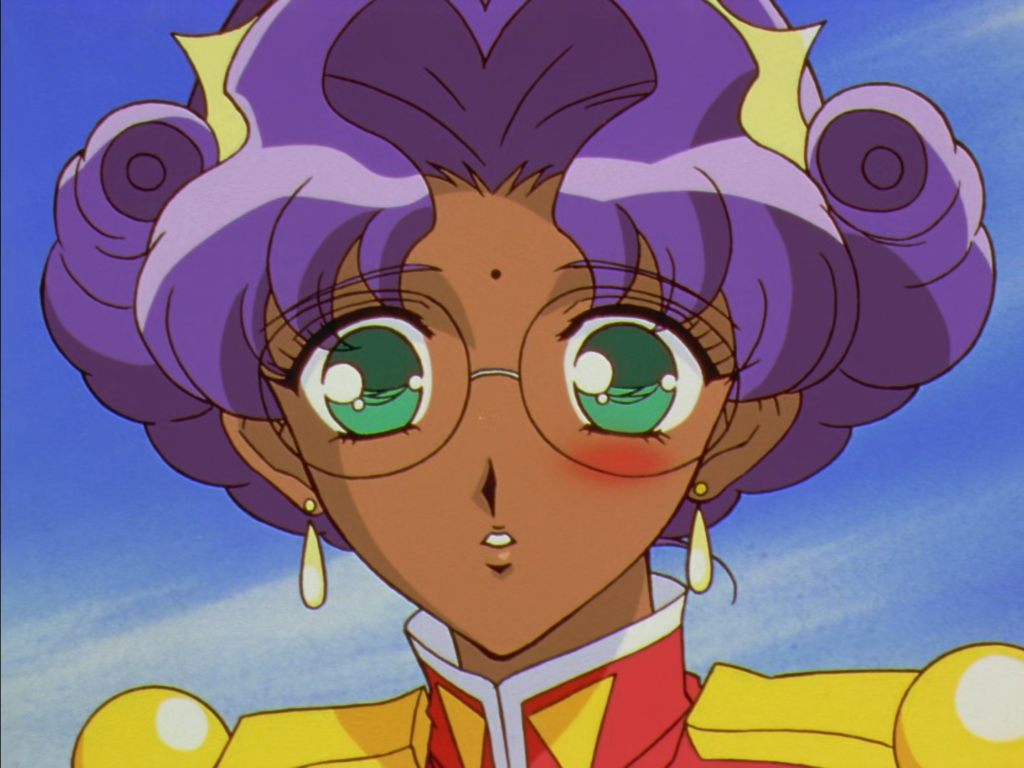
Deuteragonist Anthy Himemiya is a frustrating character, though I expect she is deliberately written that way. Passive to the point of lacking any agency of her own, she obeys whichever cast member she is currently “engaged” to, even (if in the case of green-haired Saionji) this involves repeated physical abuse. Seriously, what the hell is up with all of the face slapping in this show? It becomes uncomfortably hilarious how many times characters inappropriately slap one another. Perhaps this is also deliberate? It certainly contributes to a sense of heightened emotional absurdity.
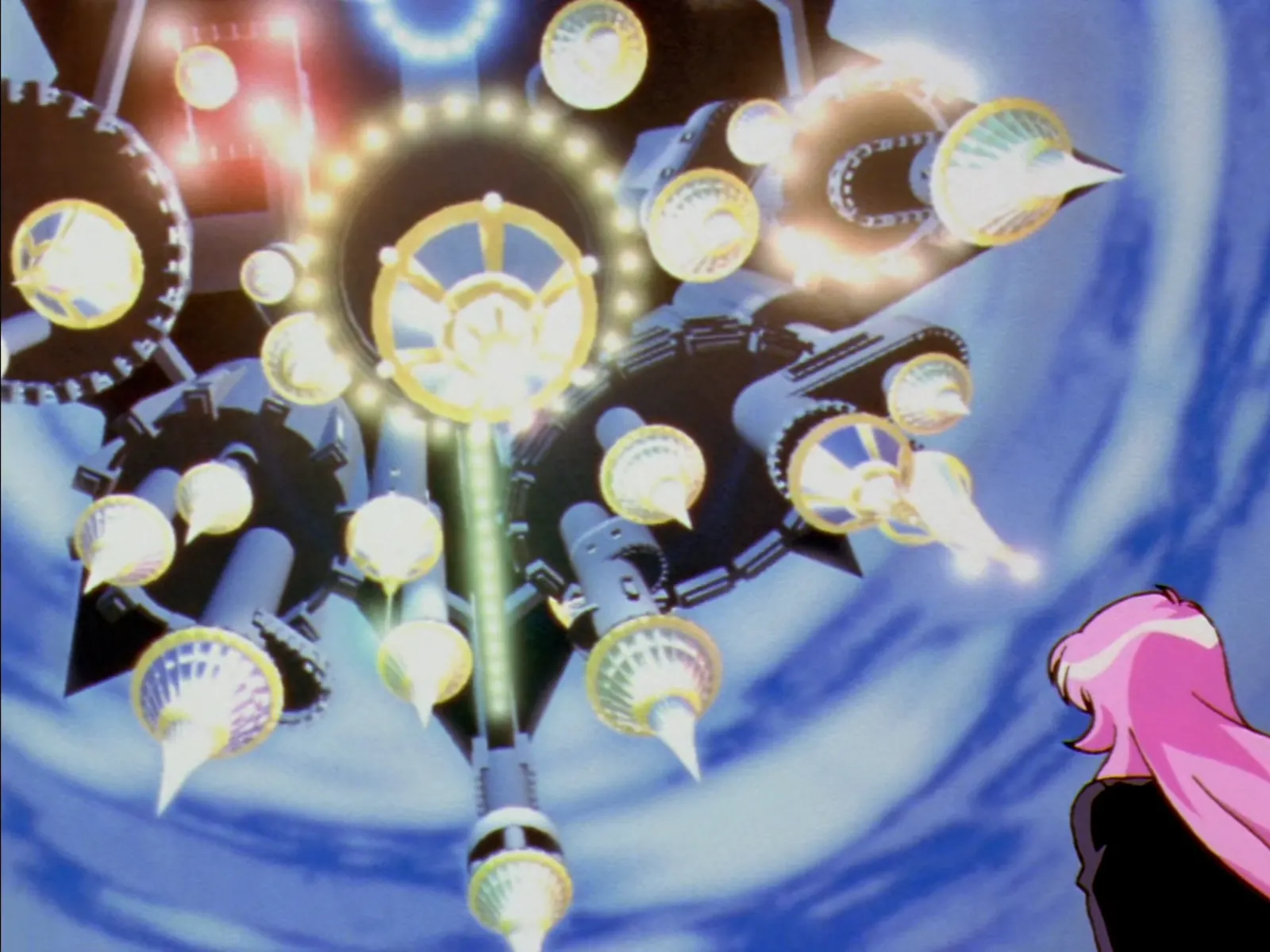
Much of the (wafer-thin at this point) plot involves Utena defending Anthy against would-be suitors in highly stylised duels atop a mystical tower, above which hangs a spectral inverted castle. Yup, none of this random stuff gets explained (nor am I sure it ever will) – it’s best just to smile, nod, and go with it. Someone who calls themselves “The End of the World” sends written instructions to The Student Council to advise them on who should fight for The Rose Bride next. Utena codifies director Ikuhara’s signature use of repetitive scenes and musical sequences, a trait that infuses all of his later works. Every time the council meet, there is a scene where they appear as silhouettes in a gated elevator and chant portentous nonsense about breaking eggs and revolutionising the world. What we don’t get is any indication what the ideologies or motivations of these characters actually are. It’s gibberish that’s presumably meant to sound cool, though after the 12th time it gets a bit tired.
A bizarre greek chorus of two verbose schoolgirls in silhouette usually follows, and their nonsense chatter tends to echo the episode’s theme. Sometimes these discordant conversations are funny, other times they’re just a bit distracting and weird. Whenever Utena is summoned to the battle arena, an extended musical sequence follows where she ascends the spiral staircase and her outfit undergoes a transformation not unlike in a magical girl show. This scene is undeniably cool, though I’m not sure I can be bothered with it repeating over 39 episodes in total. The fights themselves are pretty fun – mostly one-on-one sword duels where combatants battle to knock the petals from a rose pinned to their opponent’s chest. Utena herself does not fully understand the reason for her participation in these battles, but it is heavily hinted that it is something to do with her elusive prince, an apparition of whom appears at least twice during some of her battles.
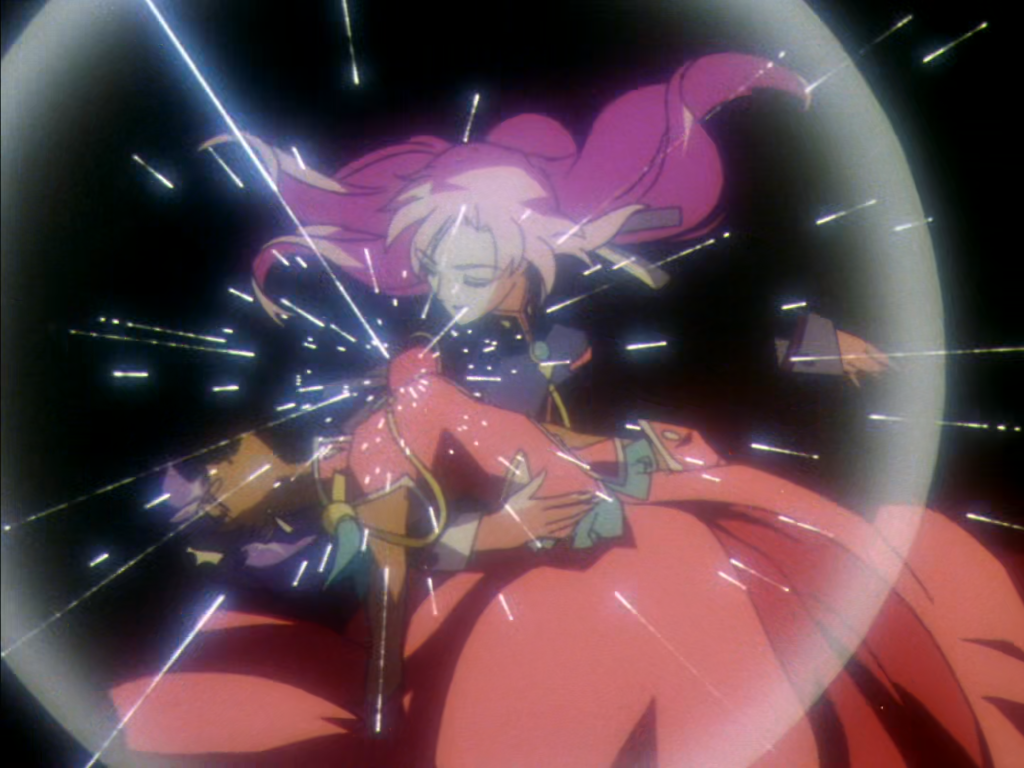
Anthy holds within her “The Sword of Dios”, a mystical weapon that her betrothed can draw from within her body (c.f. Clamp’s X, or even NisiOisin’s Monogatari). Obtaining the sword involves a deliberately sensual animation sequence where Anthy bends backwards in submission while Utena or another character delicately withdraws then holds the weapon aloft like something out of He Man or She-Ra. Anthy rarely seems to have any opinion over who she wants to win said battles, and meekly follows the demands of whoever has won her. I found it very hard to care about her character because of this passivity, and Utena herself calls her out on this constantly. I suspect the show will develop her agency in future, but for these 12 episodes Anthy does not get a lot of development – at least, not enough to change her behaviour in any meaningful way.
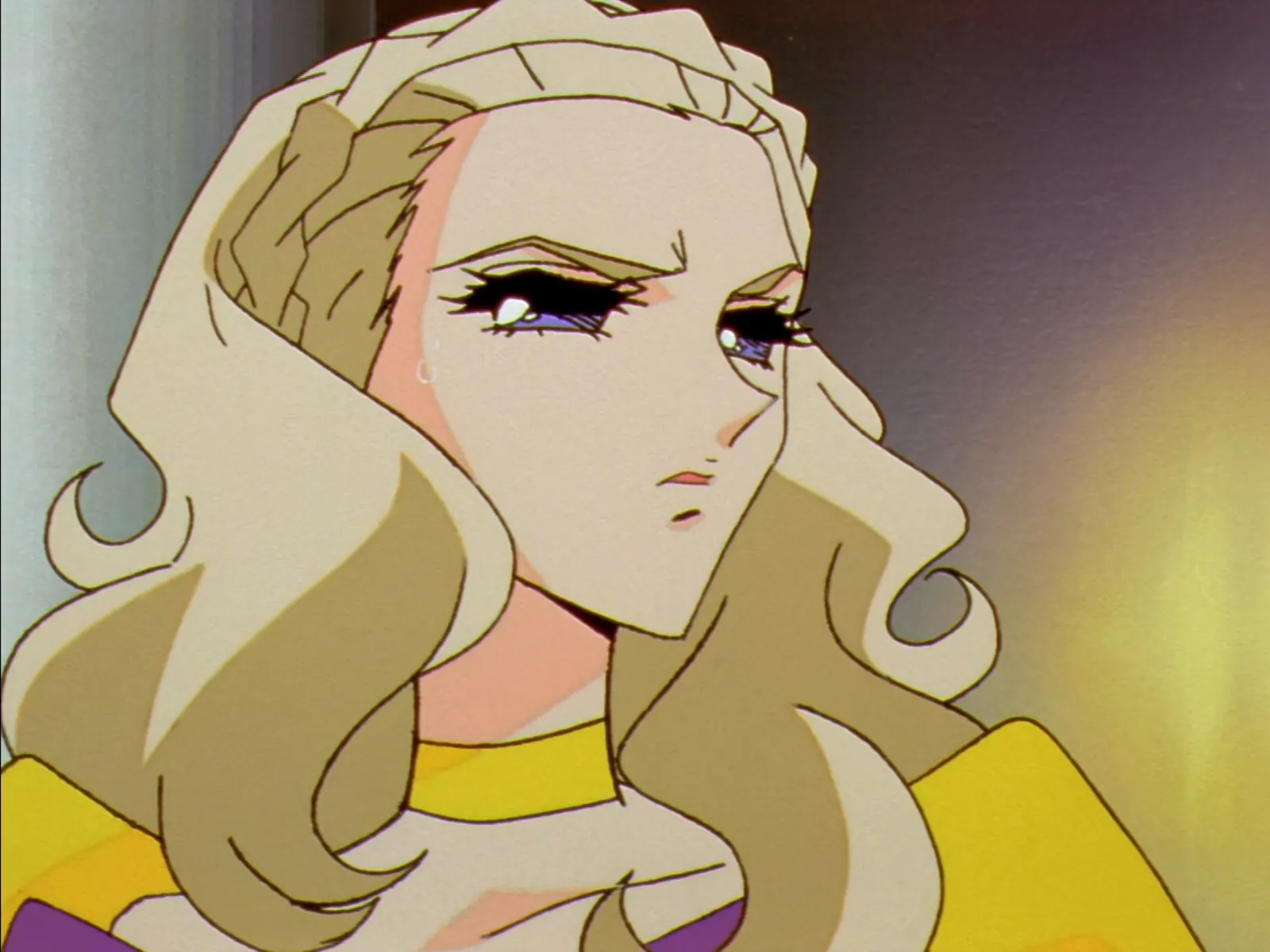
Utena’s supporting characters are a bit of a mixed bag. By far the most grating is hateful mean girl Nanami, younger sister to Student Council chairman Touga. She idolises him to a deeply uncomfortable degree, going as far as to bully and humiliate any other female she perceives as a threat to her cosy brother-sister relationship. In one utterly absurd episode that seemed like it belonged to a different show, her machinations appeared to lead to Utena and Anthy switching bodies via the ingestion of cursed curry. As punishment her brother forced her to travel India to find a rare spice to cure the problem, where she suffered continual humiliation, bodily harm and a bizarre running joke about vindictive elephants. I mean… it was quite funny, but… eh?
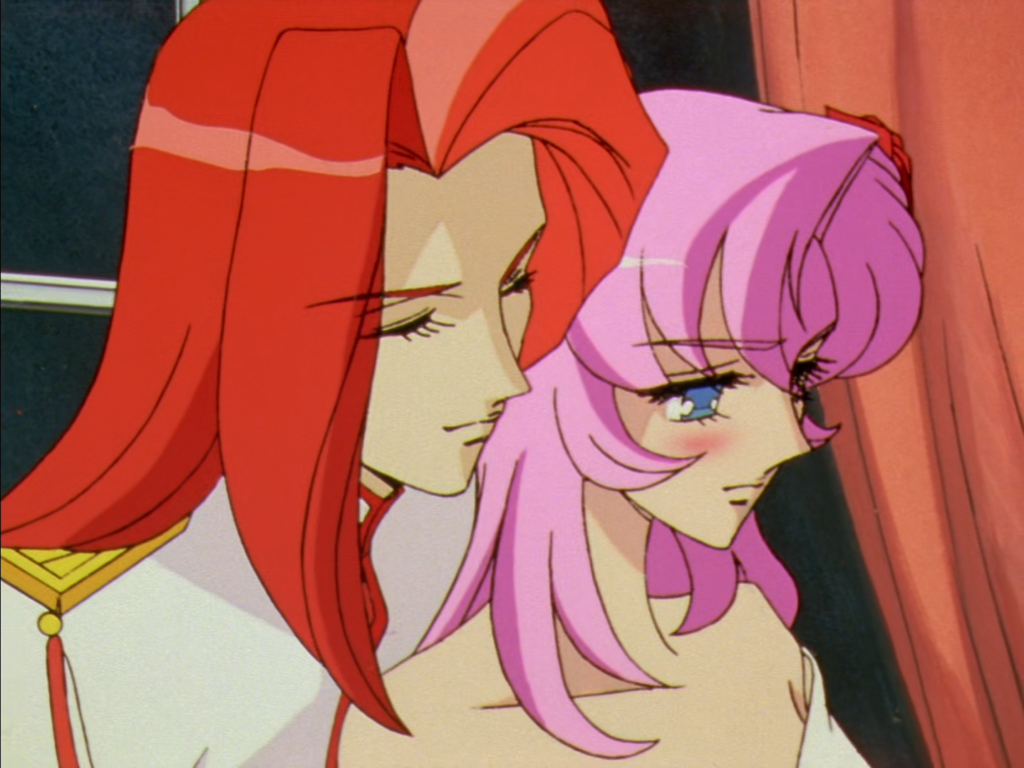
Touga himself is a stereotypical long-red-haired bishonen who appears to be something of a playboy, seems interested in Utena (or at least owning/dominating her) and has a secret vindictive, manipulative streak a mile wide. He tries to convince Utena that he is the prince that inspired her as a child, but as the audience we’re under no illusions that he’s a scumbag. I hope he gets some kind of painful, humiliating comeuppance later. At this point in the story, Utena is still kind of flustered by him – there’s no doubt she finds him attractive, and at one point she says to another character that all she wants is to “find a normal boy” to be her boyfriend.
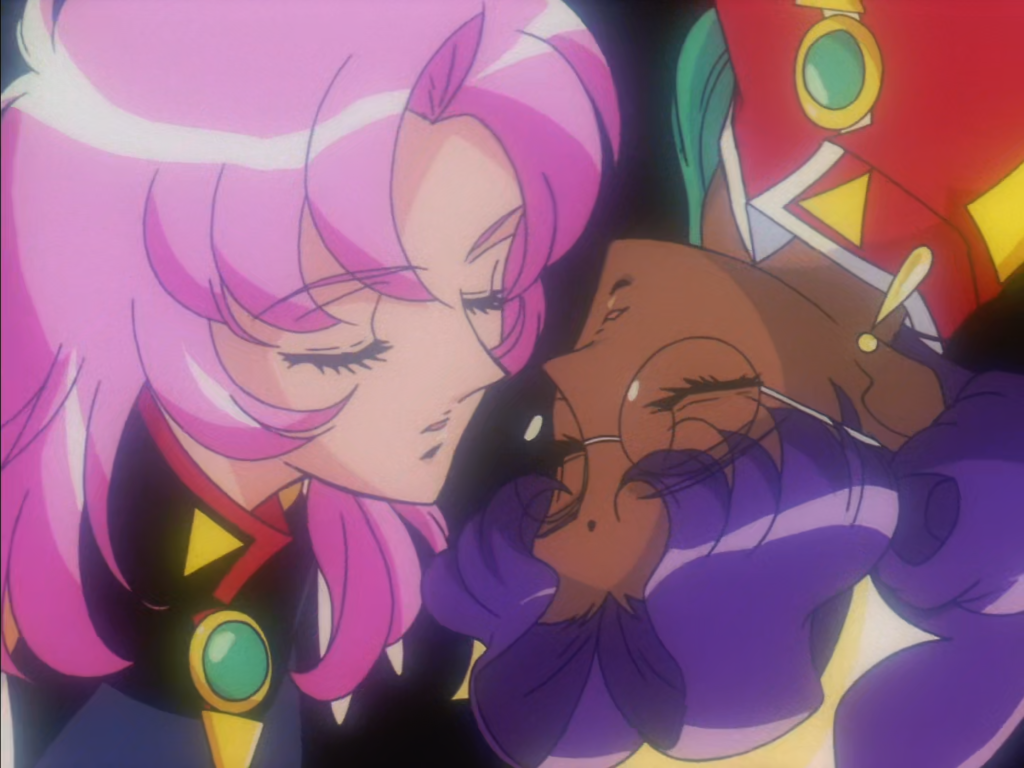
Utena’s relationship with Anthy at present seems almost entirely platonic – she clearly cares for this girl who seems unable to care for herself, but doesn’t seem to consider that their relationship could ever evolve to be anything more, despite their “engagement”. When Utena loses Anthy at one point, the deep desolation evidenced by her reverting to typical female uniform hints at profound feelings triggered by the traumatic loss. Yes, she wants Anthy to become an independent person who can choose to make her own friends, but Utena single-mindedly battles to win her back like a possession just as much as the other characters do. I suppose she had no other option. I wonder if the series is trying to say something about how impossible it is to fight for someone else’s benefit if they won’t even fight for themselves? It will be interesting to see how this theme is developed in later episodes (if it is indeed, at all.)
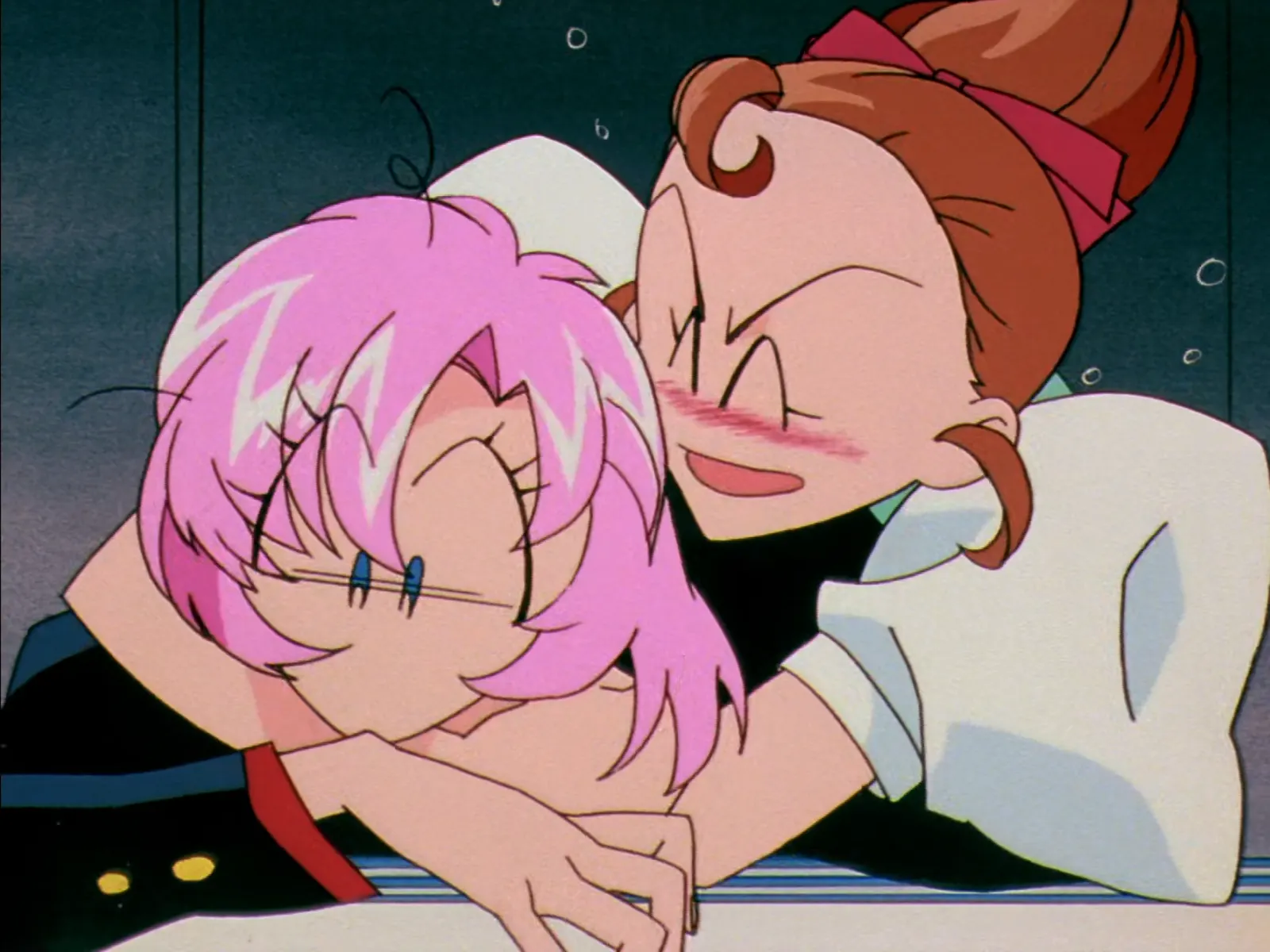
Utena’s “best friend” Wakaba is a mostly one-note character at present, who vacillates between her love for pretty boys (like Saionji who cruelly rejects her) and her devotion to Utena that blows past the platonic friendship banner straight into sapphic obsession. The show mostly plays their relationship for laughs, but Wakaba often completely ignores Utena’s personal space by glomping onto her like a spaghetti-limbed limpet, while declaring her intention to love her forever. I found her very irritating, although in one standout scene she does bring a despondent Utena to her senses, acting like a good friend for once.
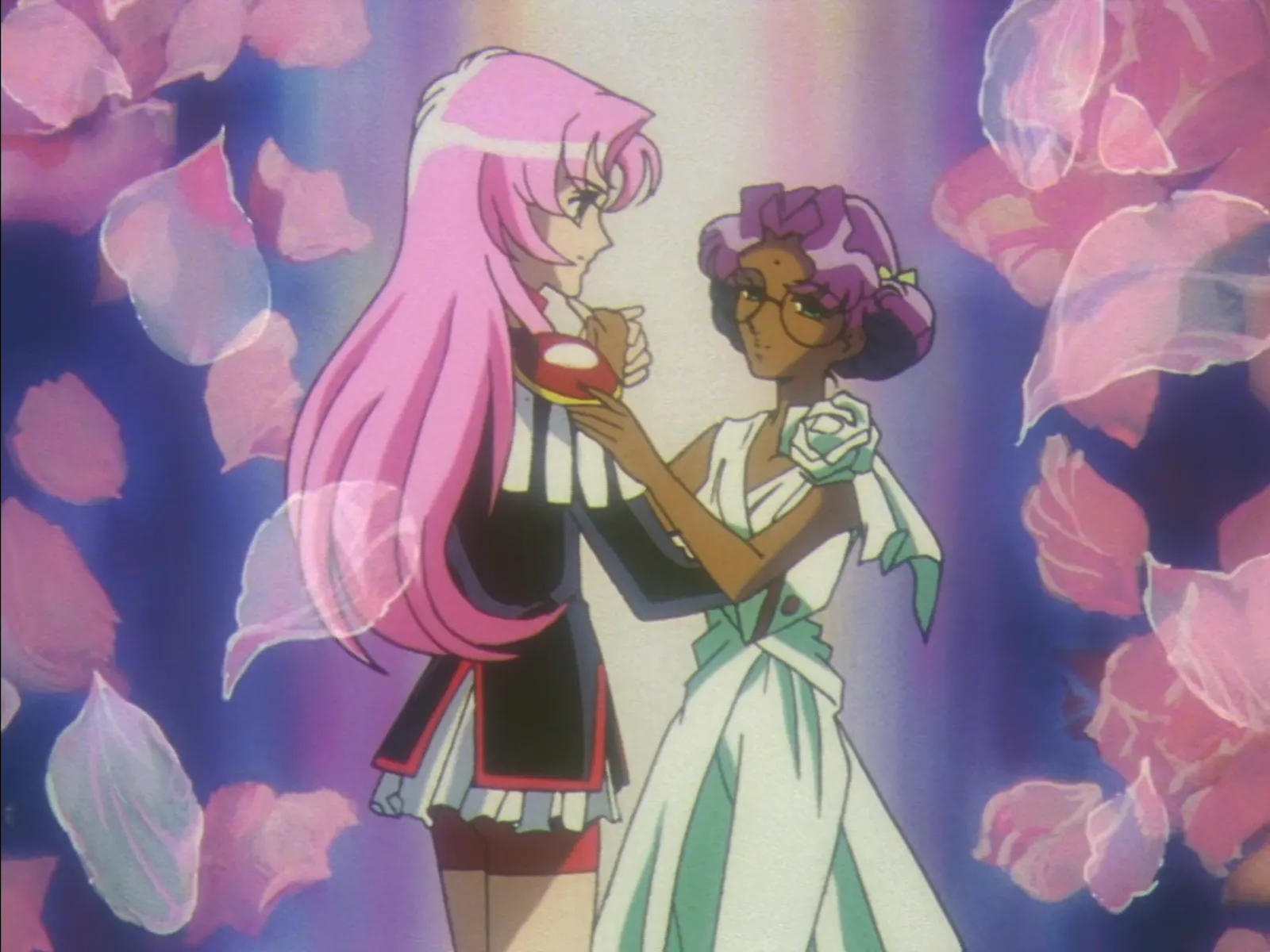
Overall, this introductory “Student Council Saga” was an ok start to the series. Apart from the striking design of Utena herself and a couple of the interesting musical numbers, I found this to be disappointingly by-the-book. I suspect all the best (and presumably subversive, surreal) stuff is yet to come. The set itself is a lovely, sturdy matt-black box that holds each of the three blu-ray volumes. Each volume also comes with a poster and 5 art cards. Some of the initial run also came with an art book and replica rose seal rings, but I wasn’t quick enough off the mark to get those. On-disc extras are fairly minimal – some TV spots and a live-action music video. I’ll be back to write about that whenever I can coerce my daughter to watch collections 2 and 3 with me.

Revolutionary Girl Utena Part 1 Collector’s Edition Blu-ray: The Student Council Saga
Series Director: Kunihiko Ikuhara
Production Studio: JC Staff
Original Japanese TV broadcast: April 2nd 1997 – June 18th 1997
UK Blu-ray release: 20th July 2020
Runtime: 300 minutes (episodes 1-12)
Video: 1080p pillarboxed 4:3 ratio
Audio: Japanese with English subtitles, English dub
Distributor: Anime Limited


Get involved!
Comments